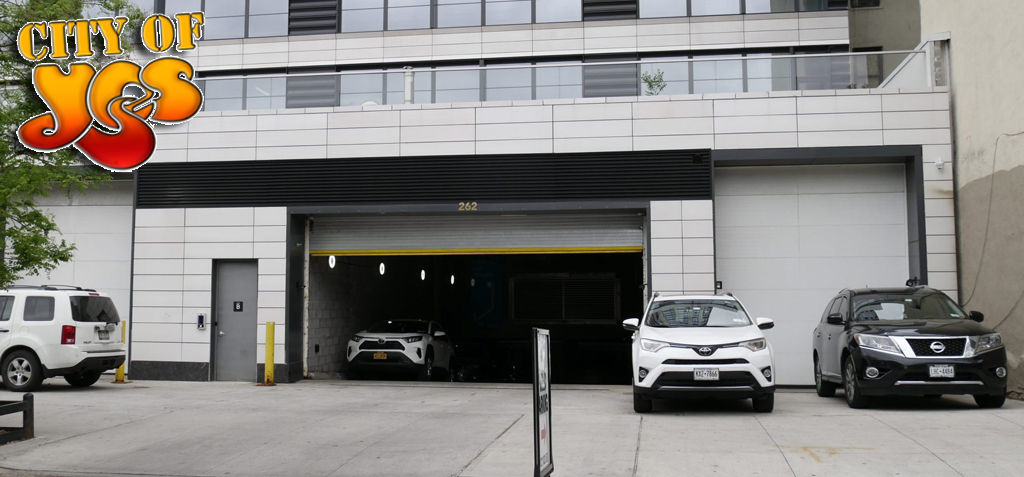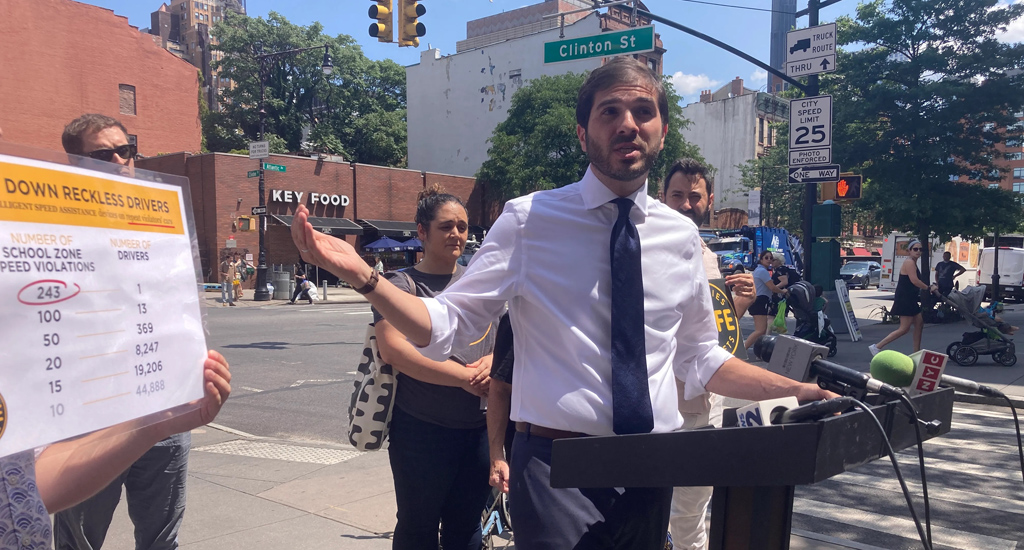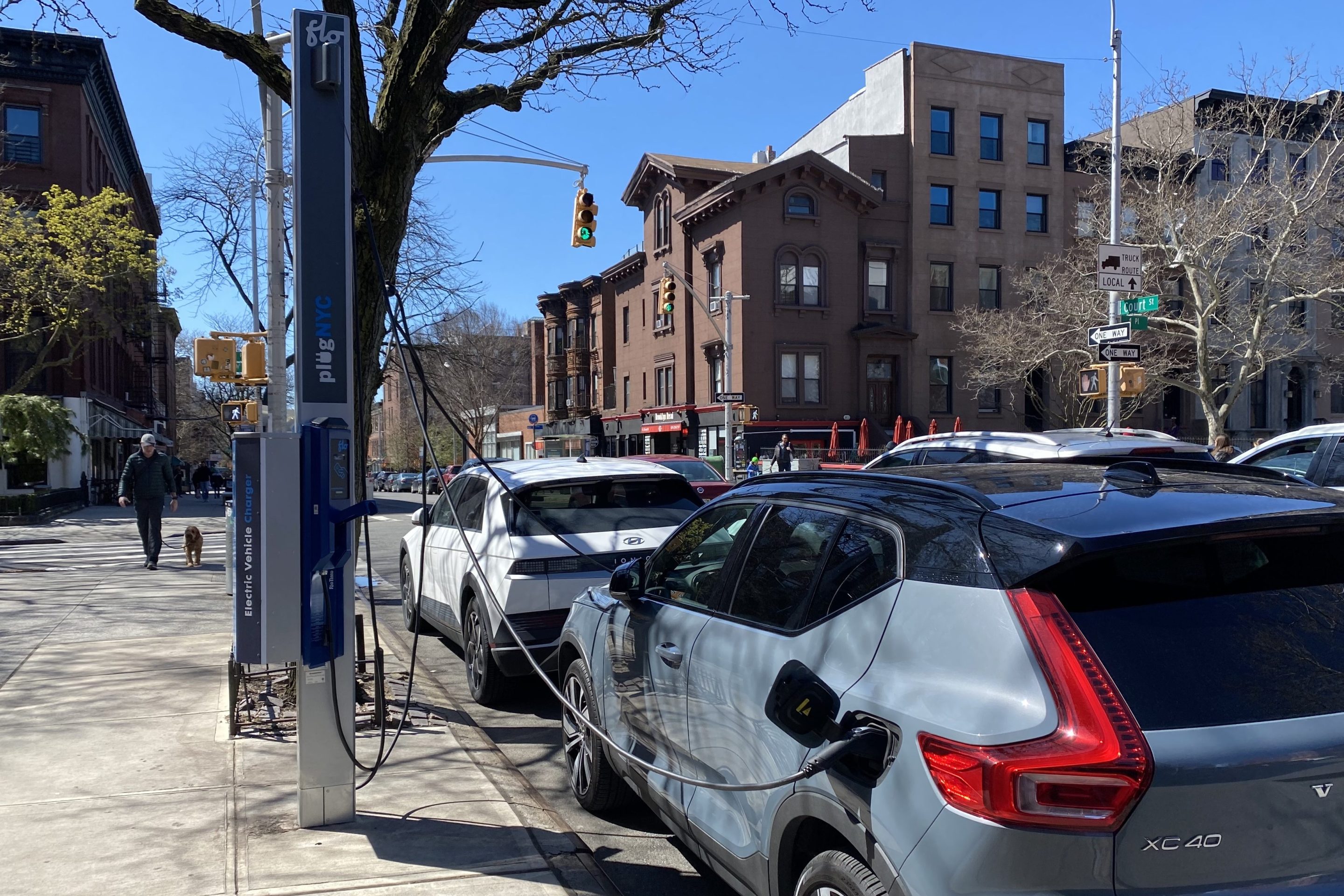This is the third part in Streetsblog’s series profiling 11 officials who are bringing American cities and towns into the 21st century when it comes to transportation and planning policy. Read the earlier profiles in part one and part two.
Joe Calabrese
General Manager, Greater Cleveland Regional Transit Authority
In 2007, Greater Cleveland's Regional Transit Authority (RTA) was named best public transit system in North America by the American Public Transit Association. And it wasn't because this struggling Ohio city has the best trains and buses in the nation -- clearly it doesn't have the resources of New York's MTA or DC's Metro. The award recognized RTA's management, which is truly world class. And no one deserves more credit than Joe Calabrese, the organization's long-time general manager.
Calabrese has a reputation, inside Northeast Ohio and out, for getting the job done. He's resourceful. He's politically astute. And thanks in part to its legacy rail system, greater Cleveland has managed to maintain a respectable transit network despite its dependence on an auto-centric state bureaucracy.
That's all background for the real reason we chose Calabrese for this list.
Perhaps you've heard of Cleveland's six-mile bus rapid transit system? With dedicated, center-running bus lanes; elevated, pre-paid boarding; and extra-large, frequently-running hybrid buses, Cleveland's HealthLine is the most advanced BRT corridor in the U.S.
It's been a big success despite slower-than-anticipated run times. The New York Times swooped into Cleveland recently to remark on the relative bonanza of development taking place along the BRT corridor, which links the city's two major job centers. Euclid Avenue, the site of the project, once heavily blighted and dangerous, also underwent a road diet. It now includes bike lanes and wide, landscaped sidewalks and medians. The project has led to half a billion dollars in new development.
Pushing this project forward in a region not known for embracing change was no small feat. But with Calabrese spearheading the effort, the Federal Transit Administration gave Cleveland the resources to become a national innovator in bus rapid transit. Calabrese built a broad political coalition in support of the project, including the regional chamber of commerce, the metropolitan planning agency and the state of Ohio.
"Joe was the key to making that project happen," says Ryan McKenzie, a Cleveland-based sustainability consultant and advocate who helped shape the HealthLine. "The idea of building something in that corridor had languished for decades [though] voters had approved funding for a subway at least 60 years ago."
Now the project is inspiring other cities. When Detroit made its shift from a light rail plan to BRT, city leaders were quick to point out the success of Cleveland's system.
Ryan Gravel
Perkins+Will, Design Manager for Atlanta's Beltline Corridor
Ryan Gravel was a graduate student at Georgia Tech when he started going for hikes on an abandoned rail line that circled Atlanta. Thanks to the time he spent studying in Paris, he was intrigued by the role of infrastructure investments in shaping urban design.
For his master's thesis, Gravel made plans to resurrect this corridor as a trail system and passenger rail line that would make vast new sections of notoriously car-centric Atlanta accessible to the unmotorized masses.
A little over 10 years later, the Atlanta region is thrillingly close to making those plans a reality, and Gravel is leading the charge as design manager for Atlanta's Beltline Corridor with design firm Perkins+Will.
Previously, Gravel worked on the Beltline project for eight years as a volunteer and then as an employee with the Atlanta Planning Department. (Hence, we stretched the eligibility rule for the "visionary bureaucrats" list to accommodate him and his current private sector position.)
The Atlanta region is currently in the midst of implementing the trail and greenway portion of the project. More importantly, the region is preparing for a historic tax referendum that would dramatically expand the money available for transit, putting construction of the rail elements within reach.
More transportation options truly can't come soon enough for this region. Atlanta is drowning in traffic. Local construction crews are currently widening I-75 through suburban Cobb County to -- brace yourself -- 23 lanes.
But the Beltline could be revolutionary. Atlanta is carved up by highways and industrial parks. The very basic rail transit system, MARTA, operates on a hub and spoke model that can't serve many trips. The very concept of a belt-like rail system is new for the U.S.
Already the trail work is transforming the way people experience the city, Gravel told the local blog PurgeATL.
"I was really surprised at how fast we could get to certain parts of the city," he said. "I don’t think the general public realizes the convenience that the BeltLine will bring."






